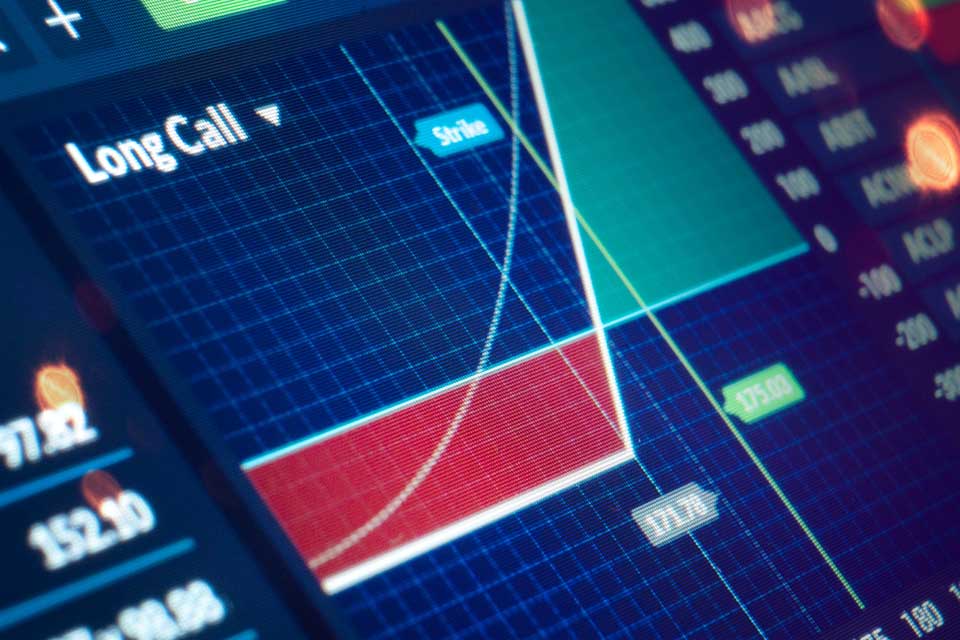Extreme futures market volatility is characterized by rapid and substantial price movements within a short period, often driven by sudden economic, political, or environmental events. This volatility can result in significant gains or losses for traders, as the market reacts swiftly to new information. Factors such as unexpected central bank interventions, geopolitical tensions, and global financial crises are common triggers of such volatility. For example, the 2020 COVID-19 pandemic caused unprecedented fluctuations in futures markets, with crude oil prices even turning negative due to a collapse in demand and lack of storage capacity. Such events underscore the inherent risks and the potential for significant market disruptions that traders must navigate.
The impact of extreme volatility extends beyond immediate financial consequences. It can lead to broader economic instability, influence policy decisions, and alter investor behavior. During periods of high volatility, market participants may resort to hedging strategies to mitigate risk, which can further amplify market movements. Additionally, regulatory bodies may implement measures such as circuit breakers to curb excessive trading activity and stabilize markets. The long-term effects of extreme volatility can include changes in market structure, the emergence of new trading strategies, and a reevaluation of risk management practices. Ultimately, understanding and managing the causes and effects of extreme volatility is crucial for maintaining the integrity and efficiency of futures markets.
The futures markets have witnessed some significant and volatile movements over the years, driven by economic events, geopolitical tensions, and market speculation. Here are ten of the most notable moves:
1. 1980 Silver Market Collapse (Silver Thursday)
- Date: March 27, 1980
- Background: The Hunt brothers, Nelson Bunker Hunt and William Herbert Hunt, attempted to corner the silver market, driving prices from around $11 per ounce in September 1979 to nearly $50 per ounce in January 1980.
- Event: When the COMEX introduced new rules limiting the amount of silver contracts investors could hold, prices plummeted. Silver fell by over 50% in just four days.
- Impact: This event led to massive losses for the Hunt brothers and their investors, highlighting the risks of speculative bubbles and market manipulation.
2. 1987 Stock Market Crash (Black Monday)
- Date: October 19, 1987
- Background: The Dow Jones Industrial Average fell by 22.6% in one day, the largest single-day percentage decline in history.
- Event: Futures markets, especially stock index futures, experienced extreme volatility as portfolio insurance strategies and automated trading systems exacerbated the sell-off.
- Impact: The crash led to regulatory changes and the implementation of circuit breakers to prevent such drastic moves in the future.
3. 2008 Global Financial Crisis
- Date: September 2008
- Background: The collapse of Lehman Brothers and the subsequent credit crunch caused widespread panic in financial markets.
- Event: Futures markets for commodities, stocks, and bonds saw unprecedented volatility. Oil prices, for instance, fell from over $140 per barrel in July to around $30 per barrel by December.
- Impact: The crisis led to increased scrutiny of financial instruments and the introduction of the Dodd-Frank Act to regulate derivatives trading.
4. 2014-2015 Oil Price Collapse
- Date: June 2014 to January 2015
- Background: A combination of oversupply from US shale oil production and OPEC’s decision not to cut production led to a dramatic fall in oil prices.
- Event: Crude oil futures dropped from over $100 per barrel to below $50 per barrel in just seven months.
- Impact: The sharp decline affected energy companies, leading to bankruptcies and significant job losses in the sector.
5. 2020 COVID-19 Pandemic
- Date: March 2020
- Background: The global spread of COVID-19 led to lockdowns and severe economic disruptions.
- Event: Futures markets for equities, commodities, and currencies experienced extreme volatility. Notably, the S&P 500 futures hit “limit down” multiple times, and crude oil futures for May delivery went negative, reaching -$37.63 per barrel.
- Impact: The unprecedented negative pricing of oil futures highlighted the lack of storage and the severity of demand destruction.
6. 1997 Asian Financial Crisis
- Date: July 1997
- Background: The crisis began in Thailand with the collapse of the Thai baht, leading to widespread economic turmoil across Asia.
- Event: Currency futures, particularly for the Thai baht, Indonesian rupiah, and South Korean won, saw dramatic declines as investors pulled out of emerging markets.
- Impact: The crisis underscored the risks of excessive foreign borrowing and led to significant reforms in the affected economies.
7. 2011 Swiss Franc Intervention
- Date: September 6, 2011
- Background: The Swiss National Bank (SNB) intervened to cap the Swiss franc at 1.20 per euro to prevent further appreciation amid the European debt crisis.
- Event: The SNB’s announcement led to a dramatic move in currency futures, with the franc dropping sharply against the euro and other currencies.
- Impact: The intervention was a significant example of central bank action influencing currency markets.
8. 1973 Oil Crisis
- Date: October 1973
- Background: The Arab oil embargo against nations supporting Israel during the Yom Kippur War led to a quadrupling of oil prices.
- Event: Crude oil futures soared as supply disruptions caused panic in energy markets.
- Impact: The crisis led to economic recessions in many countries and highlighted the geopolitical risks associated with oil dependency.
9. 1990 Invasion of Kuwait
- Date: August 2, 1990
- Background: Iraq’s invasion of Kuwait led to fears of a disruption in oil supplies from the Gulf region.
- Event: Oil futures prices surged from around $21 per barrel to over $40 per barrel within a few months.
- Impact: The price spike caused economic strain globally and set the stage for the Gulf War.
10. 2015 Swiss Franc Shock (Francogeddon)
- Date: January 15, 2015
- Background: The Swiss National Bank unexpectedly abandoned the franc’s peg to the euro.
- Event: The franc surged nearly 30% against the euro and other currencies within minutes, causing chaos in currency futures markets.
- Impact: The sudden move led to significant losses for traders and highlighted the risks of central bank policies on currency stability.
These events demonstrate the inherent volatility and unpredictability of the futures markets, influenced by a complex interplay of economic, geopolitical, and speculative factors.
To open an account with Cannon Trading Company, please click here.
Ready to start trading futures? Call US 1(800)454-9572 – Int’l (310)859-9572 email info@cannontrading.com and speak to one of our experienced, Series-3 licensed futures brokers and start your futures trading journey with E-Futures.com today.
Disclaimer – Trading Futures, Options on Futures, and retail off-exchange foreign currency transactions involves substantial risk of loss and is not suitable for all investors. Past performance is not indicative of future results. You should carefully consider whether trading is suitable for you in light of your circumstances, knowledge, and financial resources. You may lose all or more of your initial investment. Opinions, market data, and recommendations are subject to change at any time.
Important: Trading commodity futures and options involves a substantial risk of loss. The recommendations contained in this writing are of opinion only and do not guarantee any profits. This writing is for educational purposes. Past performances are not necessarily indicative of future results.
**This article has been generated with the help of AI Technology. It has been modified from the original draft for accuracy and compliance.
***@cannontrading on all socials.







